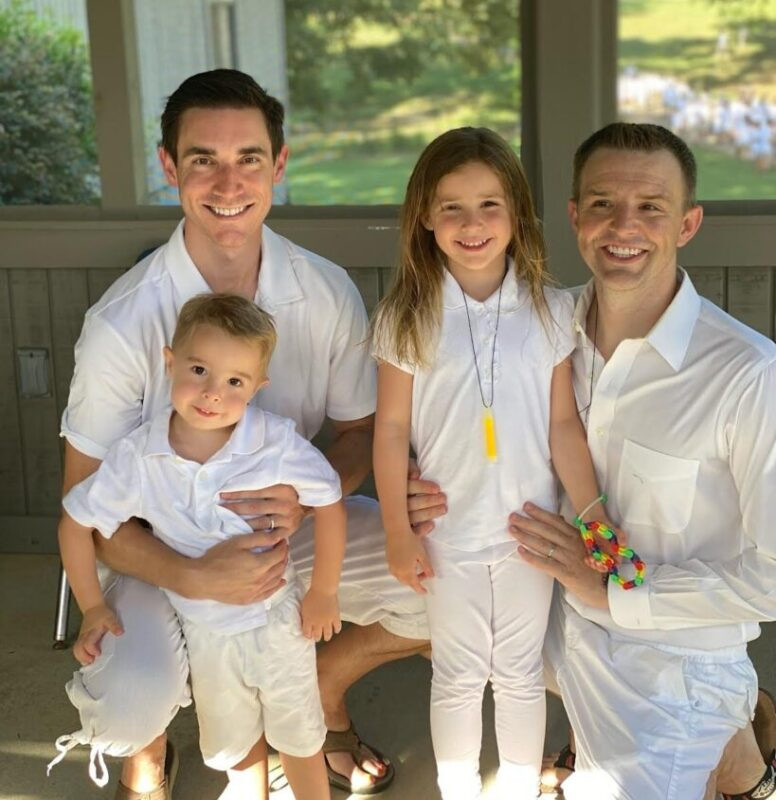Growing up in Westchester County, New York, my childhood was markedly different from many of my friends. While they excitedly packed for Jewish summer camp, I anticipated summer days at the beach. Their return from camp was filled with tales of color wars and lifelong camp family connections, while my stories revolved around fishing catches and marina adventures. I never felt I missed out, yet I always wondered about the deep allure of summer camp and the bonds formed away from family for extended periods.
Earlier this year, an unexpected opportunity arose: an invitation to serve as the camp doctor for a week at the Union for Reform Judaism’s Jacobs Camp in Mississippi. As a gay, Jewish individual from the Northeast, initial thoughts sparked a sense of potential cultural clash. However, the relentless demands of my profession as a pediatric heart transplant cardiologist were taking a toll on my mental well-being. The prospect of practicing medicine in a different setting, with different challenges, felt like it might just reignite my passion for my profession. Let me be clear, I deeply love my work, but the emotional weight of caring for critically ill children, compounded by the constant struggle against misinformation surrounding COVID-19 science, had become exhausting.
 Image: Dr. Kleinmahon experiencing the rejuvenating atmosphere at Jacobs Camp, highlighting the positive impact of a change of scenery on professional passion.
Image: Dr. Kleinmahon experiencing the rejuvenating atmosphere at Jacobs Camp, highlighting the positive impact of a change of scenery on professional passion.
Arriving at Jacobs Camp, I was a mix of excitement and apprehension. What would the camp atmosphere be like? Would I gain the trust of parents I had never met? Could I simply practice medicine purely for the love of healing? Adding to my anxieties was the question of being openly gay in rural Mississippi. This opportunity coincided with Pride Month, and I wondered if I could express my pride authentically and be fully accepted. My family was planning to join me for the weekend, and I was unsure how my husband and children would be received.
These uncertainties quickly dissolved within hours of being at camp. We were incredibly busy. One evening alone, I attended to 25 campers and staff in just four hours. Navigating COVID protocols and various camp-related ailments was a constant dynamic, yet I found myself constantly smiling. I was supported by an amazing team of nurses through some demanding situations. In the quiet of the night, overlooking the serene lake, I felt a sense of the extraordinary. My passion for medicine, for doing what I truly love, was not just rekindled – it exploded back to life. This experience was Just What The Doctor Ordered.
But the magic didn’t stop there. The health center team received an invitation to an all-staff meeting. After routine announcements, Anna Herman, the camp director, began to speak about the significance of June as Pride Month. She spoke of the Stonewall Riots and the ongoing challenges faced by the LGBTQ+ community, affirming Jacobs Camp’s unwavering commitment to love and support for everyone. Afterward, I approached Anna, admitting I had hesitated to ask if she wanted me to speak about Pride, unsure if it was appropriate. She immediately gathered everyone’s attention again and gently nudged me to the front.
I shared my initial apprehension about moving to New Orleans for medical school as a gay Jew from New York. I spoke about my family and the hurtful predictions I faced when coming out – being told I couldn’t have a family or become a doctor. Then, in a slightly unconventional move, I asked the staff to look at my toes. Normally not one for painted toenails, I had painted them in rainbow colors the week before camp. While doing so, I felt a flicker of self-consciousness, but reasoned, “If even one child, counselor-in-training, counselor, or staff member sees this and feels a little more at home, it’s worth it.” As I stepped back from the circle, Anna presented a large box of T-shirts, handing me the first one and then distributing one to every staff member. It was the Jacobs Camp logo emblazoned in a rainbow. I was overwhelmed.
I conveyed to the camp administration that this gesture, seemingly simple, had the potential to be profoundly life-saving. Given the LGBTQ+ community’s disproportionately high rates of depression, anxiety, and suicide, small acts of support carry immense weight. Sending a clear message to a young person that they are safe and belong is invaluable.
As Jewish people, many of us are accustomed to being a minority. We understand the importance of advocating for equality and treating everyone with love and respect, values deeply ingrained in our community and tradition. A mentor once told me, “Nothing human is foreign to me.” We are all human, and our differences are what create a beautiful and complex world.
I am deeply grateful for the opportunity to have been part of the URJ community. If a single week at Jewish camp could be so profoundly beneficial for a grown adult like myself, imagine the lasting impact it must have on the thousands of campers and staff who return summer after summer. Now, I truly understand why my childhood friends still cherish and talk about their camp experiences.
Dr. Jake A. Kleinmahon is a pediatric cardiologist and the director of pediatric heart transplant and heart failure at Ochsner Hospital for Children in New Orleans, LA. Dr. Kleinmahon is actively involved in the International Society for Heart and Lung Transplantation and the Pediatric Heart Transplant Society and is dedicated to addressing healthcare disparities among racial groups in pediatric heart transplant recipients.
